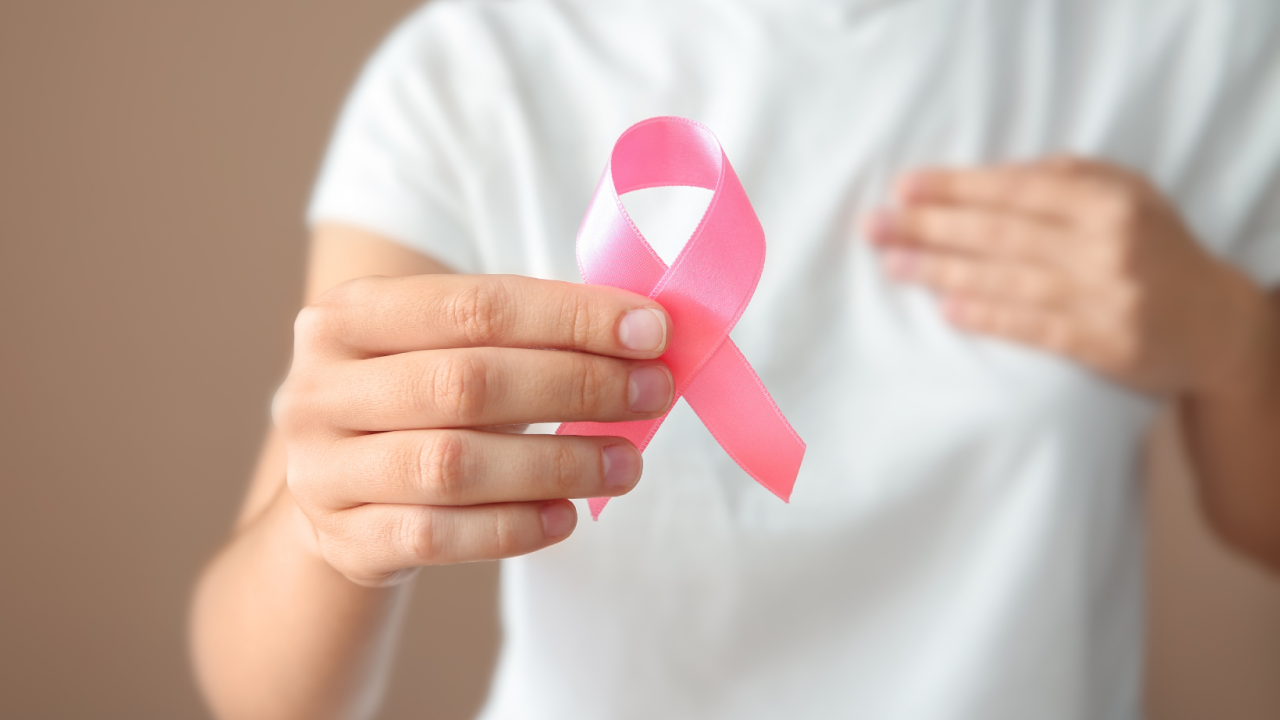Guardian of Health: Recognizing the Early Signs of Breast Cancer in Indian Women

Breast cancer is a formidable adversary, but awareness and early detection can significantly improve outcomes. In India, where breast cancer rates are rising, knowing the initial signs and symptoms is crucial.
India is witnessing a surge in breast cancer cases, with statistics revealing a disturbing trend. According to recent data, breast cancer is the most common cancer among Indian women, constituting 14% of all cancers in women. Shockingly, an estimated one in 28 women in India is likely to develop breast cancer during her lifetime, with a mortality rate of one in two diagnosed cases.
Signs and Symptoms: The Early Warning Signs
Early detection is the cornerstone of effective breast cancer treatment. Recognizing the initial signs can be lifesaving. Here are some key symptoms to watch out for:
1. Lump or Mass: The most common early sign of breast cancer is a lump or mass in the breast or underarm area. While not all lumps are cancerous, any unusual growth warrants immediate attention.
2. Changes in Breast Appearance: Pay attention to changes in breast size, shape, or texture. Dimpling, puckering, or redness on the breast skin could indicate underlying issues.
3. Nipple Changes: Changes in the nipple, such as inversion, discharge (other than breast milk), or scaling, should be investigated promptly.
4. Persistent Pain: While breast pain is common and not always indicative of cancer, persistent pain or discomfort in the breast or armpit should be evaluated by a healthcare professional.
Are You at Risk?
Understanding whether you are at an increased risk of developing breast cancer can significantly empower you to take necessary preventive measures and seek early detection methods. Several factors contribute to the risk of breast cancer, and being aware of these can help you and your healthcare provider create a more tailored health strategy.
Age
Age is one of the most significant risk factors for breast cancer. The risk increases as you age, particularly after menopause. Statistics show that the majority of breast cancer cases occur in women over the age of 50. However, younger women should also be vigilant, as breast cancer can and does occur in younger age groups.
Family History
Genetics play a crucial role in breast cancer risks. If you have a close relative, such as a mother, sister, or daughter, who has been diagnosed with breast cancer, your risk of developing the disease is higher. The risk further increases if multiple family members are affected or if a family member was diagnosed at a young age.
Genetic Mutations
Specific inherited genetic mutations significantly increase the risk of breast cancer. The most well-known of these are the BRCA1 and BRCA2 genes. Women carrying mutations in either of these genes have a higher lifetime risk of developing breast cancer and ovarian cancer compared to those who do not have these mutations. Genetic testing can identify these mutations, and counseling can help you understand and manage your risk.
Hormonal Factors
Factors that increase your exposure to estrogen can also increase your risk. This includes early menstruation (before age 12), late menopause (after age 55), having your first child at an older age, or not having children at all. Hormone replacement therapy (HRT), particularly those that combine estrogen and progesterone, taken during menopause can also elevate risk, although this increases with the length of time HRT is used.
Obesity
Being overweight or obese, particularly after menopause, has been found to increase the risk of breast cancer. Excess fat tissue can increase estrogen levels, which may promote the development of breast cancer.
Lifestyle Choices
Lifestyle factors such as alcohol consumption, smoking, a lack of physical activity, and a poor diet can also contribute to an increased risk of developing breast cancer. For instance, women who consume two or more alcoholic drinks a day have a higher risk compared to non-drinkers. Similarly, active smoking and exposure to secondhand smoke have been linked with a modest increase in breast cancer risk.
Recognizing these risk factors does not mean that breast cancer is inevitable, but it does empower you to take action. Lifestyle modifications such as maintaining a healthy weight, engaging in regular physical activity, minimizing alcohol intake, and not smoking can help reduce your risk. Furthermore, discussing your personal and family medical history with your healthcare provider can lead to earlier and more frequent screening or preventive measures, such as medication or surgery for those at high risk.
Precautions To Prevent Breast Cancer
The power to combat breast cancer lies in awareness and education. Here are some strategies to stay informed and proactive:
1. Regular Breast Self-Exams: Perform monthly breast self-exams to familiarize yourself with your breast tissue and detect any changes early on.
2. Clinical Breast Examinations: Schedule regular clinical breast exams with your healthcare provider, who can detect abnormalities that may not be noticeable during self-exams.
3. Mammograms: Women aged 40 and older are advised to undergo regular mammograms for early detection of breast cancer. Younger women with a family history or other risk factors should consult their doctors about screening recommendations.
Empowering Resilience: Uniting Against Breast Cancer at KKR Hospital
Breast cancer knows no boundaries, but neither does the human spirit's resilience. By understanding the signs, embracing awareness, and advocating for early detection, we can emerge as guardians of our health and allies in the fight against breast cancer.
At KKR Hospital, we recognize the urgency and complexity of battling breast cancer. Our dedicated oncology team utilizes a comprehensive approach, incorporating the latest advancements in Neoadjuvant therapy, which integrates surgery, chemotherapy, radiation, and other potential treatments. This multifaceted strategy not only targets the cancer effectively but also enhances the likelihood of a successful recovery.
Let's stand together, empower one another, and strive for a future where breast cancer is no longer a threat to Indian women.
